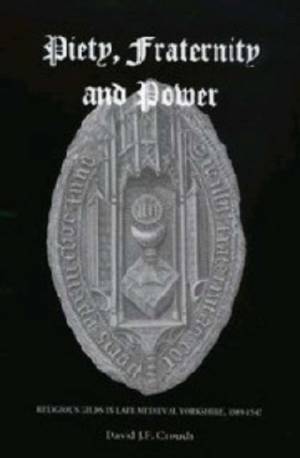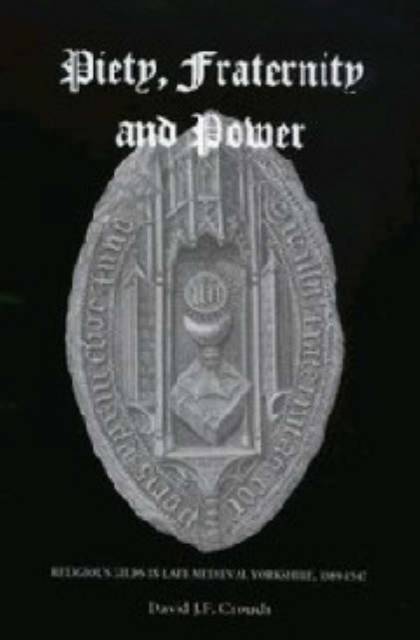
Bedankt voor het vertrouwen het afgelopen jaar! Om jou te bedanken bieden we GRATIS verzending (in België) aan op alles gedurende de hele maand januari.
- Afhalen na 1 uur in een winkel met voorraad
- In januari gratis thuislevering in België
- Ruim aanbod met 7 miljoen producten
Bedankt voor het vertrouwen het afgelopen jaar! Om jou te bedanken bieden we GRATIS verzending (in België) aan op alles gedurende de hele maand januari.
- Afhalen na 1 uur in een winkel met voorraad
- In januari gratis thuislevering in België
- Ruim aanbod met 7 miljoen producten
Zoeken
Piety, Fraternity and Power
Religious Gilds in Late Medieval Yorkshire, 1389-1547
David Crouch
Hardcover | Engels
€ 209,45
+ 418 punten
Omschrijving
The religious gild was central to the structure of late medieval society, providing lay people with a focus for public expressions of orthodox piety that accorded with the doctrinal views of government between 1399 and 1531. Using evidence from the county of Yorkshire, this book argues that beyond their devotional and ceremonial roles, the influence of these basically pious institutions permeated all aspects of late medieval political, social and economic activity. The author begins by discussing the evidence for Yorkshire gilds in the late fourteenth century, moving on to survey the changing distribution, development, and membership of fraternities throughout the county over the next century and a half. Special attention is given to the ways in which the religious gilds of Yorkshire interacted with town government, with clerical bodies, with occupational organisations, and with one another, illustrated with detailed case-studies of the gilds of Corpus Christi, York, and St Mary in Holy Trinity, Hull, which are particularly well-documented. The final section of the book deals with the decline and disappearance of religious gilds during the Reformation, showing how their devotional purposes were eroded by the new policies of central government and how many gilds anticipated their official dissolution. DAVID J.F. CROUCH gained his D.Phil from the University of York.
Specificaties
Betrokkenen
- Auteur(s):
- Uitgeverij:
Inhoud
- Aantal bladzijden:
- 344
- Taal:
- Engels
Eigenschappen
- Productcode (EAN):
- 9780952973447
- Verschijningsdatum:
- 27/04/2000
- Uitvoering:
- Hardcover
- Formaat:
- Genaaid
- Afmetingen:
- 163 mm x 243 mm
- Gewicht:
- 725 g

Alleen bij Standaard Boekhandel
+ 418 punten op je klantenkaart van Standaard Boekhandel
Beoordelingen
We publiceren alleen reviews die voldoen aan de voorwaarden voor reviews. Bekijk onze voorwaarden voor reviews.









